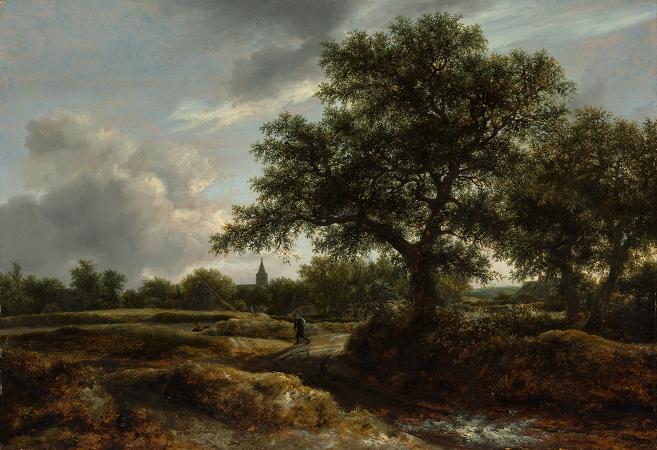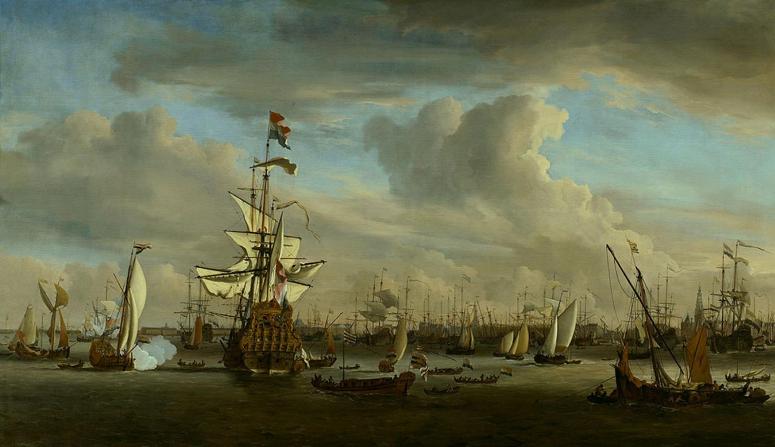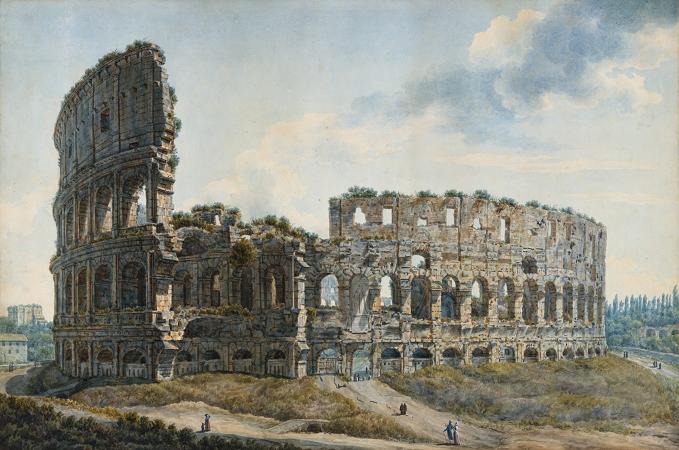Joseph Mallord William Turner (1775 - 1851). Joseph Mallord William Turner was a renowned English Romantic painter celebrated for his expressive use of color and light. He was a master of capturing the dramatic and sublime aspects of nature, particularly in his landscapes and seascapes. In 2014, his painting Rome from Mount Aventine sold at Sotheby's for $47,000,000. Turner's work significantly influenced the development of Impressionism and modern art. He was influenced by the Dutch masters, particularly the marine painters like Willem van de Velde the Younger, who inspired his interest in depicting the power and beauty of the sea. He also admired the Italianate landscapes of Claude Lorrain, which influenced his use of light and atmosphere. His Fighting Temeraire (London National Gallery), contrasts the grandeur of an old warship with the power of the industrial age. Rain, Steam and Speed (also London National Gallery) captures the dynamic energy of the Industrial Revolution, blending elements of landscape and machinery. His Slave Ship (Boston Museum of Fine Arts) is a powerful and disturbing image that evokes the horrors of the slave trade. He was born in London and showed an early talent for art. He entered the Royal Academy of Arts when he was just 14 years old and quickly gained recognition for his watercolor paintings. In his early career, Turner focused on topographical and architectural subjects, but he later became known for hisdramatic and atmospheric landscapes. Turner's paintings often featured natural elements such as the sea, sky, and mountains, and he was particularly interested in capturing the effects of light and weather on the landscape. He was known for his innovative use of color and his ability to create a sense of movement and energy in his works. Some of Turner's most famous paintings include The Fighting Temeraire, Rain, Steam and Speed, and The Slave Ship. He was also a prolific printmaker, producing thousands of prints throughout his career. Turner was a controversial figure in his time, with some critics praising his innovative techniques and others finding his work too radical. However, his influence on the development of modern art is undeniable, and he is now widely regarded as one of the greatest painters of the Romantic era. He is known for his expressive colourisations, imaginative landscapes and turbulent, often violent marine paintings. Turner was born in Maiden Lane, Covent Garden, London, to a modest lower middle-class family. He lived in London all his life, retaining his Cockney accent and assiduously avoiding the trappings of success and fame. A child prodigy, Turner studied at the Royal Academy of Arts from 1789, enrolling when he was 14, and exhibited his first work there at 15. During this period, he also served as an architectural draftsman.
more...














